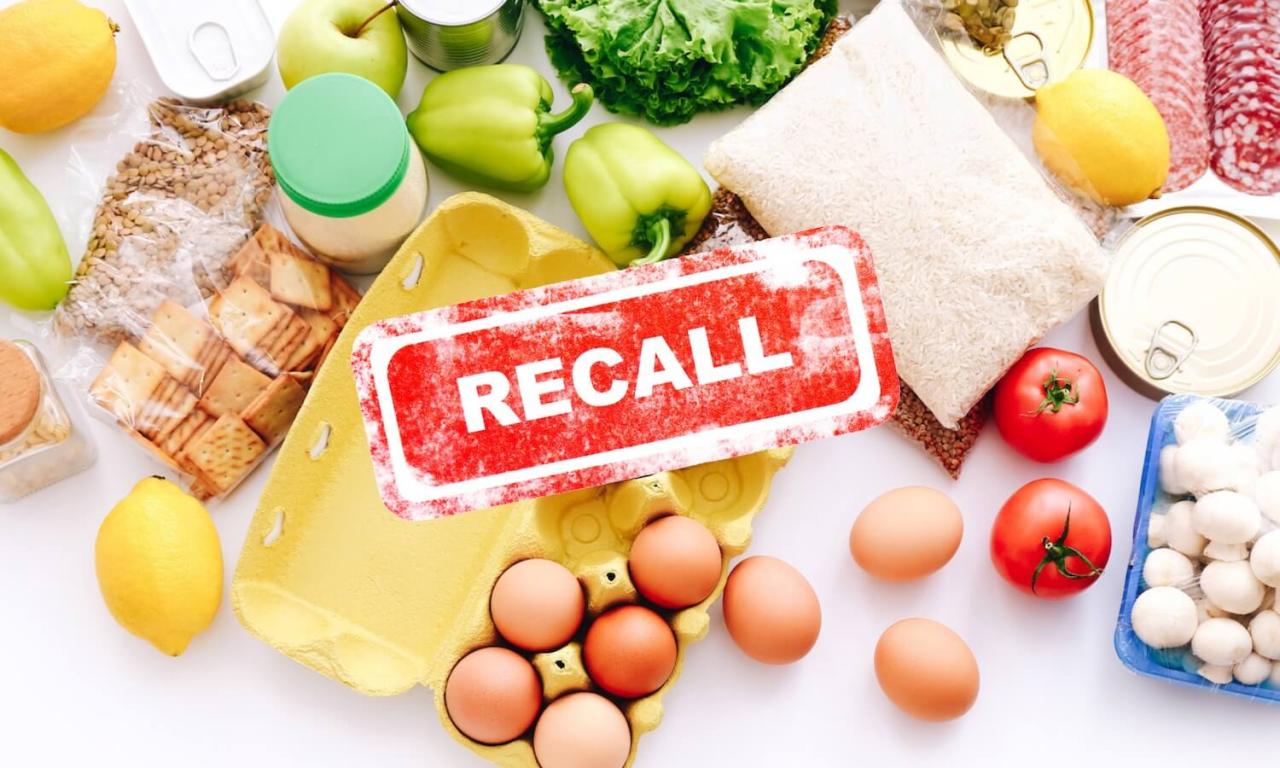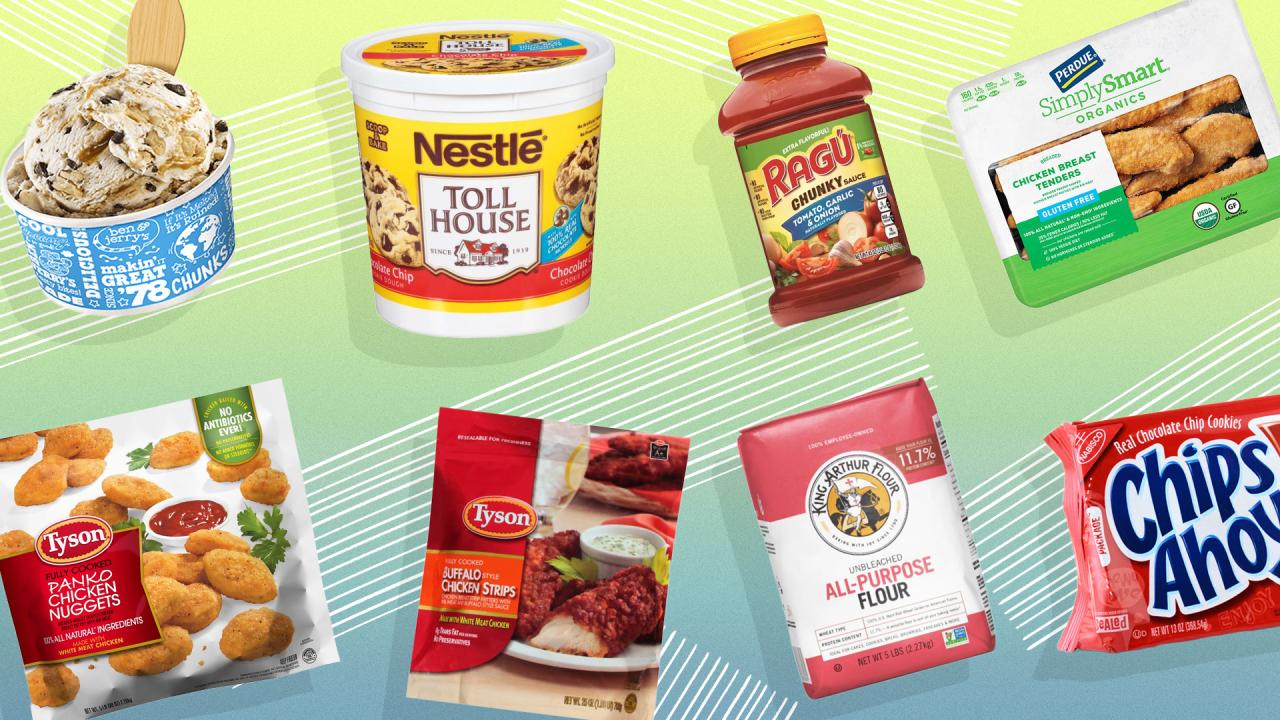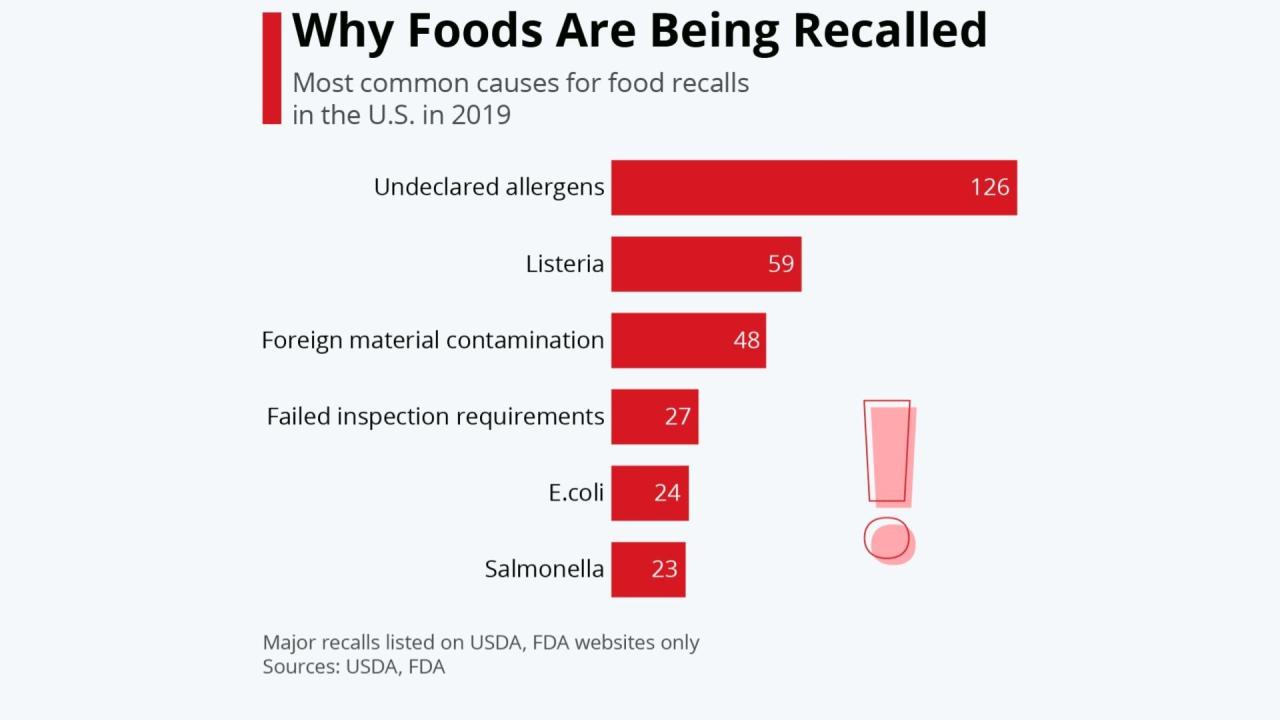Christmas food recalls are a growing concern, threatening the safety of holiday feasts. From contaminated ingredients to mislabeling and packaging issues, these recalls can have severe consequences for consumers. Understanding the causes, impact, and prevention measures is crucial to ensure a safe and enjoyable holiday season.
Recent high-profile Christmas food recalls have highlighted the need for vigilance. In 2022, a major recall of frozen pizzas due to undeclared allergens put consumers at risk. Another recall involved popular chocolate bars contaminated with salmonella, leading to widespread concern.
Christmas Food Recalls
Christmas food recalls are a serious concern for consumers, as they can pose a significant health risk. In recent years, there have been a number of high-profile Christmas food recalls, including recalls of turkey, ham, and cheese.
The potential health risks associated with consuming recalled food products can be severe. Recalled food products may be contaminated with bacteria, viruses, or other harmful substances that can cause foodborne illness. Symptoms of foodborne illness can range from mild to severe, and can include nausea, vomiting, diarrhea, and abdominal pain.
Notable Christmas Food Recalls in Recent Years
- In 2022, Jennie-O Turkey Store recalled over 91,000 pounds of ground turkey due to possible contamination with Salmonella.
- In 2021, Smithfield Foods recalled over 14,000 pounds of ham due to possible contamination with Listeria monocytogenes.
- In 2020, Kraft Heinz recalled over 5,000 pounds of cheese due to possible contamination with E. coli.
Causes of Christmas Food Recalls
Christmas food recalls are a common occurrence during the holiday season. Several factors contribute to these recalls, including:
Contamination
Food contamination can occur at any point during the production, processing, or packaging process. Common sources of contamination include bacteria, viruses, and parasites. These contaminants can cause foodborne illnesses, which can range from mild to severe.
Mislabeling
Mislabeling occurs when food is incorrectly labeled, either intentionally or unintentionally. This can be a major safety hazard, as it can lead consumers to eat food that they are allergic to or that contains harmful ingredients. Mislabeling can also lead to foodborne illnesses if the food is not properly stored or prepared.
Packaging Issues
Packaging issues can also lead to food recalls. These issues can include defects in the packaging material, such as tears or holes, or problems with the sealing of the package. These issues can allow bacteria or other contaminants to enter the food, which can lead to foodborne illnesses.
Increased Production and Demand
The increased production and demand for food during the holiday season can also contribute to recall risks. During this time, food manufacturers may be operating at capacity or even beyond, which can lead to mistakes being made. Additionally, the increased demand for food can put a strain on the food supply chain, which can make it more difficult to track and monitor food products.
Role of Regulatory Agencies, Christmas food recalls
Regulatory agencies play a critical role in monitoring and enforcing food safety standards. These agencies set food safety regulations and conduct inspections of food manufacturers to ensure that they are following these regulations. Regulatory agencies also investigate foodborne illness outbreaks and issue recalls when necessary.
Impact of Christmas Food Recalls
Christmas food recalls can have significant financial, reputational, and emotional consequences for businesses and consumers alike.
Financial Losses
- Businesses may lose revenue from unsold products, refunds, and replacements.
- Recalls can lead to increased production and distribution costs, as well as legal fees and fines.
- Companies may also face lost productivity due to employees being reassigned to recall-related tasks.
Consumer Confidence and Brand Reputation
- Recalls can damage consumer trust in a brand, leading to decreased sales and negative publicity.
- Consumers may become more cautious about purchasing certain products, even from reputable brands.
- Recalls can also affect the reputation of retailers and distributors associated with the recalled products.
Disruption of Holiday Celebrations and Traditions
Christmas food recalls can disrupt holiday celebrations and traditions for families and communities.
- Recalled products may be a key part of holiday meals or traditions, causing disappointment and inconvenience.
- Consumers may have to find alternative products or make last-minute changes to their holiday plans.
- Recalls can also create anxiety and stress for consumers who are concerned about the safety of their food.
Preventing Christmas Food Recalls
Ensuring food safety during the festive season is paramount to prevent foodborne illnesses and recalls. Collaboration among food manufacturers, retailers, and consumers is crucial to minimize risks and maintain the integrity of Christmas food products.
Strict Quality Control Measures
Food manufacturers must implement stringent quality control measures throughout the production process. Regular inspections, adherence to Good Manufacturing Practices (GMPs), and rigorous testing protocols help identify and eliminate potential hazards.
- Inspect raw materials for contamination and defects.
- Monitor production processes to ensure proper handling, storage, and cooking temperatures.
- Conduct thorough testing for pathogens, toxins, and allergens.
Adherence to Food Safety Regulations
Compliance with food safety regulations is essential to prevent recalls. Food manufacturers and retailers must adhere to local, national, and international standards to ensure food safety.
- Follow HACCP (Hazard Analysis and Critical Control Points) principles to identify and control potential hazards.
- Implement traceability systems to track food products from farm to fork, facilitating swift recall actions if necessary.
- Collaborate with regulatory agencies to stay updated on food safety guidelines and best practices.
Consumer Safe Food Handling Practices
Consumers play a vital role in preventing foodborne illnesses by following safe food handling practices.
- Store perishable foods at proper temperatures.
- Cook meat, poultry, and seafood to recommended internal temperatures.
- Wash hands thoroughly before and after handling food.
- Avoid cross-contamination by using separate cutting boards and utensils for raw and cooked foods.
Communicating Food Recalls
Timely and effective communication is paramount during food recalls to ensure public safety and minimize the risk of illness. All stakeholders, including government agencies, businesses, and the media, play crucial roles in informing the public about recalls.
Government agencies, such as the Food and Drug Administration (FDA) and the Centers for Disease Control and Prevention (CDC), are responsible for monitoring food safety and issuing recall notices. These agencies provide timely updates and information to the public through their websites, social media channels, and press releases.
Role of Businesses
Businesses, including manufacturers, distributors, and retailers, have a legal obligation to notify the public about food recalls involving their products. They should promptly remove recalled products from shelves, issue public announcements, and cooperate with government agencies to facilitate the recall process.
Role of the Media
The media plays a vital role in disseminating information about food recalls to the public. News outlets, both traditional and digital, have a responsibility to report on recalls accurately and promptly. They can help raise awareness, educate consumers, and provide updates on the progress of recalls.
Guidelines for Consumers
Consumers should stay informed about food recalls by monitoring official sources such as government agency websites and reputable news outlets. They can also sign up for recall alerts and subscribe to email lists provided by manufacturers and retailers.
When a recall is issued, consumers should immediately check if they have the affected product and follow the instructions provided by the recall notice. This may include discarding the product, returning it to the store, or following specific handling guidelines.
Closure: Christmas Food Recalls
Preventing Christmas food recalls requires a collaborative effort from manufacturers, retailers, and consumers. Strict quality control, adherence to food safety regulations, and safe food handling practices are essential. Timely and effective communication during recalls is also vital to protect consumers and minimize the impact on businesses and holiday traditions.
Commonly Asked Questions
What are the most common causes of Christmas food recalls?
Contamination, mislabeling, and packaging issues are the most frequent reasons for Christmas food recalls.
How can consumers stay informed about food recalls?
Consumers should check government websites, such as the FDA or USDA, and follow reputable news sources for timely information on food recalls.
What should consumers do if they have a recalled food product?
Consumers should immediately discard the recalled product and contact the manufacturer or retailer for further instructions.



